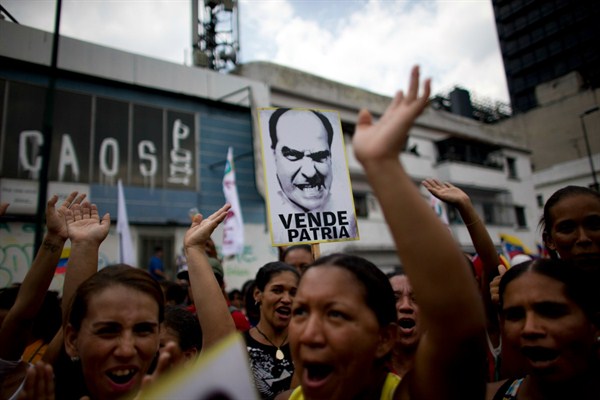Reports from Caracas of browbeaten protesters retreating from the streets are another grim reminder of the inability of sanctions to single-handedly change the behavior of an entrenched and increasingly autocratic government. Rather than undermine the regime in Venezuela, the recent series of U.S. sanctions appear to have set off a wave of unintended consequences. Not only have sanctions strengthened the legitimacy of President Nicolas Maduro’s claims of U.S. imperialism—the Trump administration has already threatened military intervention—they have provided a convenient excuse to round up opposition leaders on the charge of treason. Over time, other actions detrimental to U.S. interests will no doubt play out in Venezuela.
Adding to existing sanctions aimed at Maduro himself, “smart sanctions” imposed in July covered 13 other high-ranking Venezuelan government officials, freezing their assets and precluding any American from doing business with them. Sanctions on the head of Venezuela’s state-run oil company, PDVSA, also restricted some oil exports to the United States, as American banks and investment funds are reluctant to provide letters of credit to potential buyers of Venezuelan oil.
More sanctions were announced in late August, following the government’s decision to bypass the elected legislature with a dubious Constituent Assembly stacked with Maduro supporters. The most recent U.S. restrictions limit the Venezuelan government’s financial operations by prohibiting a range of transactions related to the country’s public debt and that of PDVSA. The sanctions seem to be part of the Trump administration’s preference for relying on unilateral measures in foreign policy, rather than international cooperation.

